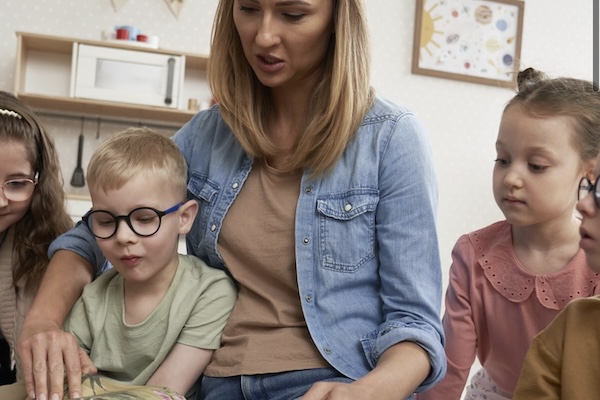 Credit: Uni.lu
Credit: Uni.lu
On Friday 4 April 2025, the University of Luxembourg (Uni.lu) held a hybrid event titled: “Fostering multilingual potential in young children in Luxembourg”.
Dr Claudine Kirsch, Professor of Education at Uni.lu, presented evidence-based findings of the ways in which educators, teachers and peers promote children’s multilingual development in day care centres, early education and preschools in Luxembourg.
Dr Kirsch stated that language development is a dynamic social and cultural process that requires regular input and exposure, but should be comprehensible and stress-free for the child. Input on its own is not sufficient - e.g. watching TV in a particular language – the child must also have opportunities to use the language. Language development is influenced by a wide array of factors, including those coming for home, school and peer environments. Early literacy gives the opportunity to expose children to a particular language or languages.
Dr Kirsch explained that reading, telling stories and singing to a child in one, two or more languages helps develop oral, narrative and early literacy skills in those languages. Children understand what is being said. Those who enjoy and are interested in the above show increased attention and concentration levels, as well as better socio-emotional development.
There is, however, a skill involved with reading and telling stories to a child. A child’s interest can be encouraged through the use of expressive books that they find interesting. The use of pictures, gestures, tone of voice and movement all play an important role in engaging the child and fostering their interest. High-quality interaction, in which children play an active part (by asking and being asked questions and being encouraged to interact and participate) are proven to encourage children to talk and engage. Reading is also influenced by children’s peers, as they learn from one another, as well as well the motivation and enthusiasm of early childhood educators.
In Luxembourg, educators tend to read in French and Luxembourgish but sing through English. Dr Kirsch also noted that children’s interest in books increases when educators frequently read to them and conversely, children show a greater interest in books and story-telling the more someone reads to them.
Following Dr Kirsch’s presentation, Prof. Dr Pascale Engel de Abreu, Associate Professor in Psychology at Uni.lu, presented “Assessing the impact of a heritage language intervention in preschool”. Prof. Dr Engel de Abreu described a heritage speaker as an individual exposed to several languages in childhood, due to migration. The language of society is the dominant language and the language of origin is the heritage language. She outlined that it is sometimes thought best to concentrate on acquiring the dominant language, as it is also the school language and therefore of importance in education and for future prospects. However, she noted that the heritage language is linked to strong socio-emotional development, well-being, identity and sense of belonging. The study also showed that maintaining and developing a child’s heritage language fosters enhanced proficiency in the instructional language. This is known as the language transfer theory.
A randomised controlled study (RCT), “Evaluating a Preschool Heritage Language Intervention for Portuguese-Speaking Children in Luxembourg”, studied 186 Portuguese-speaking children aged four to five years, from 84 classrooms in sixteen preschools where Luxembourgish was the primary language of instruction. The intervention group of 96 children received Portuguese instruction, from native speakers, four times weekly over the course of 30 weeks in listening, vocabulary, narrative and phonological awareness, among others. The control group received intervention through Luxembourgish.
The results showed that those in the intervention group made significant gains in their Portuguese language skills, including vocabulary, narrative skills and phonemic awareness. Notably, the intervention also had positive transfer effects on Luxembourgish, with improvements observed in receptive vocabulary and phonemic awareness.
Prof. Dr Engel de Abreu concluded with a quote from UNESCO: “Language is not only a tool for communication and knowledge but also a fundamental attribute of cultural identity and empowerment, both for the individual and the group. Respect for the languages of persons belonging to different linguistic communities therefore is essential to peaceful cohabitation”.
HOM









